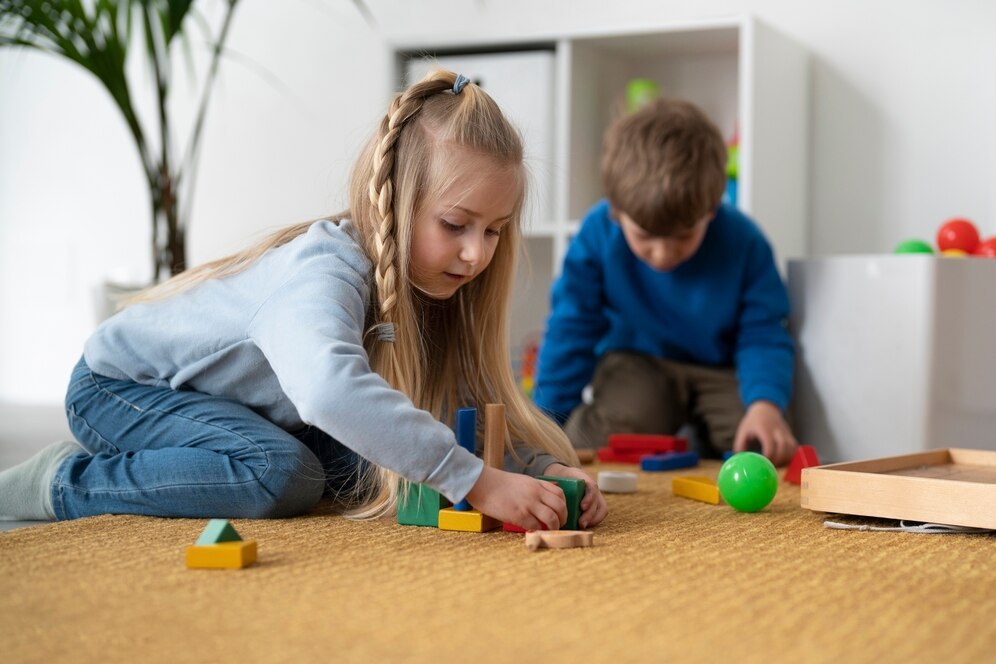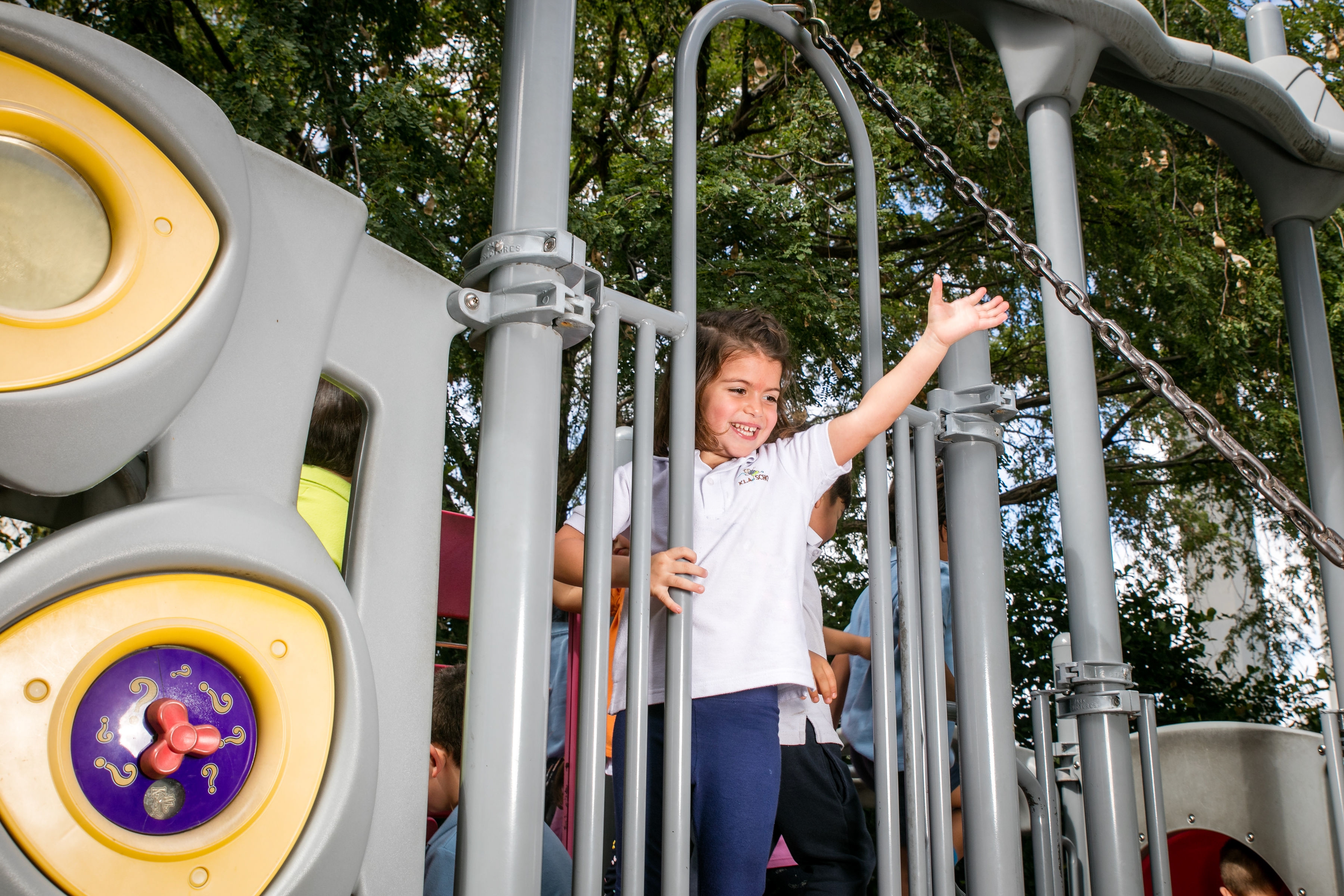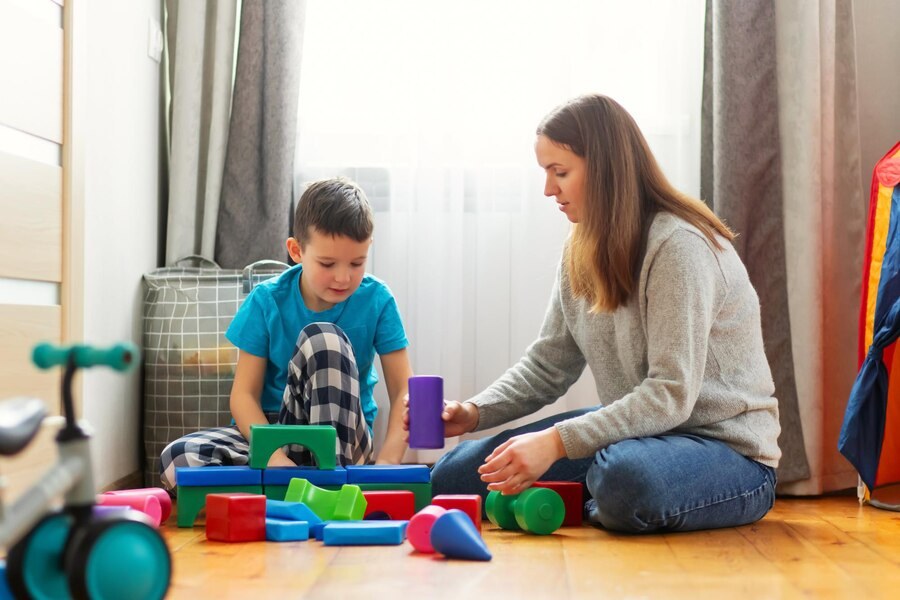Developing Your Child's Fine Motor Skills
Topics: Reggio at Home
Age Range: Preschool
Fine motor development is foundational for a child’s ability to complete everyday tasks such as writing, dressing, eating, and using tools. These skills involve coordinating small muscles, particularly in the hands and fingers, and typically emerge in early infancy, continuing to strengthen through childhood.
Incorporating purposeful activities to develop fine motor skills into a child’s daily routine supports their independence, concentration, and confidence. Whether you're guiding an infant, toddler, or preschooler, engaging, age-appropriate tasks make this developmental journey both fun and impactful.
Here are 25 hands-on activities designed to enhance fine motor abilities across different stages.
Creative Craft-Based Skill Building
Crafting helps children strengthen small hand muscles while also encouraging imagination and creativity. These activities allow for open-ended exploration while enhancing finger control, bilateral coordination, and visual-motor integration.
1. Tearing and Gluing Paper Shapes
Offer construction paper and safe glue sticks. Tearing paper builds hand strength while gluing improves finger control and spatial planning.
2. Bead Stringing with Pipe Cleaners
Use large beads and bendable pipe cleaners for toddlers to thread. This encourages coordination and the use of both hands.
3. Sticker Peeling and Placing
Provide sticker sheets for children to peel and place on paper. This strengthens pincer grasp and promotes visual-motor integration.
4. Pom-Pom Sorting with Tongs
Set up bowls and small tongs. Have children sort pom-poms by color or size to build grip strength and dexterity.
5. Finger Painting on Vertical Surfaces
Tape paper to a wall or easel. Painting this way supports wrist extension, which is essential for writing readiness.
Sensory Play for Hands-On Development
Sensory activities not only stimulate curiosity and exploration but also naturally develop fine motor control. These tactile experiences promote finger strength, coordination, and hand-eye precision in a soothing, playful environment.
6. Sensory Bins with Scoops and Spoons
Create sensory tables filled with rice, pasta, or beans. Offer tools for scooping and pouring to refine hand control and coordination.
7. Playdough Pushing and Pinching
Encourage rolling, flattening, and pinching dough. This classic fine motor skills activity enhances strength and tactile awareness.
8. Button and Zipper Practice Boards
Introduce fastener boards that allow toddlers to practice snapping, zipping, or buttoning. These skills support dressing and self-care tasks.
9. Ice Cube Transfers with Spoons
Place colored ice cubes in a tray and have children transfer them with spoons. This builds hand-eye coordination through sensory exploration.
10. Water Play with Squeeze Bottles
Squeezing water into containers strengthens hand muscles and is also calming and engaging.
Kitchen Tasks That Build Coordination
Helping in the kitchen presents daily chances to practice fine motor skills. Cooking encourages kids to pour, stir, squeeze, and handle tools—boosting control, coordination, and practical life skills.
11. Stirring and Mixing Ingredients
Invite children to stir pancake batter or mix salad. These simple kitchen jobs improve bilateral hand use and grip.
12. Peeling Bananas or Clementines
Peeling fruits promotes finger strength and independence during mealtime.
13. Pouring Water into Cups
Set up water pouring stations with minor pitchers and cups. These motions reinforce control and spatial awareness.
14. Using a Child-Safe Knife to Slice Soft Foods
Cutting bananas or soft cheese with supervision gives toddlers confidence and helps them hone their precision.
15. Measuring and Scooping Ingredients
Have preschoolers use measuring cups and spoons. This introduces math concepts while supporting activities to increase fine motor skills.
Games and Toys That Build Precision
Play-based tools and toys can help children master fine motor control through fun and focused repetition. These games encourage concentration, problem-solving, and refined movements that translate into real-world tasks.
16. Building with Blocks or LEGOs
Manipulating small building toys enhances dexterity, spatial reasoning, and persistence.
17. Lacing Cards and Threading Activities
Use pre-punched cards with shoelaces or yarn. Threading strengthens visual tracking and fine motor control, including pincer grip.
18. Using Tweezers in a Treasure Hunt
Hide small objects in sand or rice and let children extract them with tweezers for a fun and challenging activity that develops fine motor skills.
19. Paper Tearing Mosaic Art
Tear tissue paper into small bits and glue them to make colorful mosaics. This taps into creativity while engaging the muscles.
20. Pegboard and Hammering Toys
Hammering pegs into foam boards develops coordination, strength, and focus—all key elements of activities for fine motor skills.
Age-Appropriate Activities for Different Stages
Each developmental stage brings new abilities and challenges. Tailoring fine motor activities to your child’s age helps support their growth while building confidence through achievable tasks.
21. Tummy Time Grasping for Infants
Place rattles or small toys just out of reach during tummy time. Reaching and grasping strengthen muscles and visual attention. Ideal for fine motor skills activities for infants.
22. High-Contrast Crinkle Toys
Use crinkly, black-and-white baby toys to stimulate visual focus and early gripping reflexes.
23. Peg Puzzles for Toddlers
Provide puzzles with knobs to improve problem-solving and grasp development. These are excellent fine motor skills activities for children aged 1 to 2 years old.
24. Clapping and Finger Play Songs
Songs like "The Itsy Bitsy Spider" and "The Wheels on the Bus" involve hand motions that encourage bilateral coordination and rhythm.
25. Velcro Dressing Boards
Introduce boards with laces, zippers, and Velcro tabs. These practical tools support the real-life application of fine motor skills activities for preschoolers.

Supporting Growth Through Everyday Interaction
Daily routines offer numerous opportunities to naturally integrate activities that develop fine motor skills. From getting dressed to snack prep, each task becomes an opportunity to practice control, coordination, and independence.
Use playful environments to introduce fine motor skills activities for infants, then gradually build toward more complex fine motor skills activities for 1- to 2-year-olds. As children grow, they benefit from increasingly challenging activities that refine their fine motor skills, including puzzles, drawing, and crafts tailored to their abilities.
The best fine motor skills activities for preschoolers combine creativity, challenge, and fun. Whether squeezing, pinching, stacking, or tracing, children develop the essential abilities needed for writing, self-care, and exploration. Through repetition, encouragement, and playful practice, these skills grow stronger, just like the confident, capable hands of the children who develop them.
How KLA Schools Promote Fine Motor Development Through Daily Exploration
KLA Schools offer an environment where children are free to explore, manipulate, and create using thoughtfully selected materials that enhance both curiosity and motor development. Inspired by the Reggio Emilia approach, KLA Schools recognize that children learn through hands-on experiences and active engagement with their surroundings.
In each classroom, teachers present open-ended tools and natural elements that invite children to pinch, grasp, pour, and sort. These intentional learning moments promote activities to develop fine motor skills through daily routines and artistic expression. From handling clay in the Atelier to stringing beads or squeezing paint bottles, fine motor skill-building is seamlessly embedded in play.
KLA educators also support fine motor skills activities for preschoolers through guided provocations that include sensory tables, pattern games, and practical life tasks. These opportunities not only enhance physical coordination but also develop problem-solving skills, independence, and confidence.
Families partnering with KLA Schools benefit from aligned support and communication that continues beyond the classroom. Together, they work to ensure each child strengthens their motor abilities through joyful, meaningful experiences that support lifelong learning.

